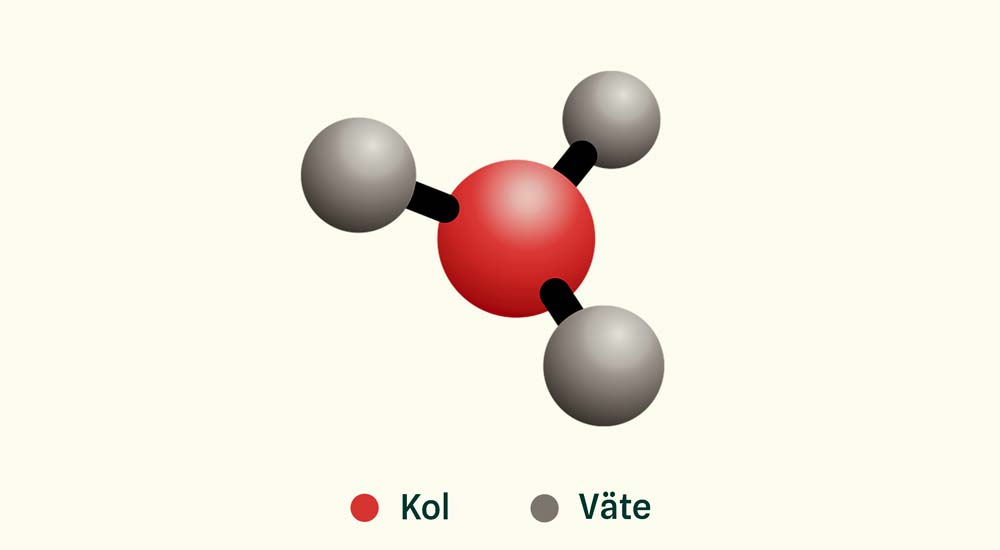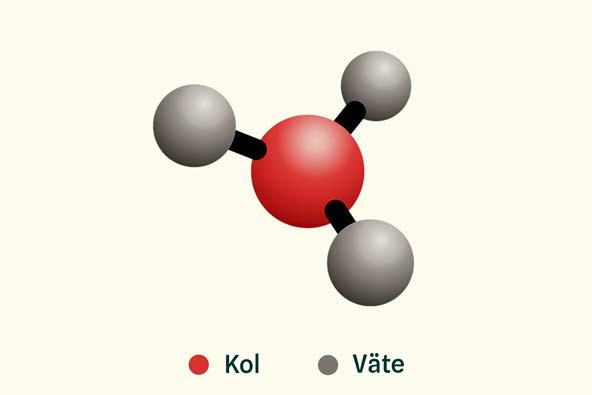Methylation is a concept that is becoming increasingly common in the health field. In relation to nutrients, methylation is linked to the absorption of B vitamins. While it can be challenging to explain methylation in simple terms, it affects many of the body's functions. Here, we aim to provide an easy-to-understand explanation of what methylation involves.
The Origin of the Word
The term "methyl" comes from the Greek word methy (μέθυ), meaning "wine," combined with the suffix -yl, which is used in chemistry to describe a group of atoms. The word methylation refers to the process of adding a methyl group (CH₃) to another molecule, a fundamental mechanism in many biological systems.
Basic Word Explanation
To understand methylation, it helps to first know what a methyl group is. A methyl group is a simple molecule with the formula CH₃. It consists of one carbon atom (C) bonded to three hydrogen atoms (H₃). Its chemical structure looks like this:


The Need for the Right B Vitamins
Several B vitamins bind to a methyl group, with B12 and folate being particularly important. When these vitamins bind to a methyl group, they transform into a form the body can use. You may notice supplements labeled as methylfolate or methyl-B12, which are already in their active forms. These can be absorbed directly and effectively by the body, especially for those with reduced methylation capacity.
What Is Methylation?
Methylation is a process where small molecules, known as methyl groups, attach to substances like DNA, influencing which genes are active or inactive. DNA is the material that carries genetic information in our cells, serving as the body's "manual." Methylation impacts everything from cell growth to immune system function and brain activity. It also regulates protein production from amino acids—the building blocks of the body's approximately 90,000 different proteins. Proper methylation supports normal bodily function, while improper methylation can lead to diseases.
Methylation also plays a key role in repairing and detoxifying the body. It can be influenced by environmental toxins and lifestyle factors, and it changes naturally with age, potentially affecting the aging process.
The Importance of Proper Methylation
An enzyme called MTHFR (1) is responsible for the methylation process in every cell. However, many people (around 30% of the population) have some type of enzyme defect, reducing its efficiency. This can lead to various health issues, as the MTHFR enzyme converts folate and B12 into their active forms.
Methylation is also crucial for the body's detoxification processes, helping to convert harmful substances into beneficial ones. If the enzyme doesn't function properly, detoxification is impaired, leading to elevated levels of homocysteine in the blood. Homocysteine is a naturally occurring amino acid, and methylation helps break it down. Elevated homocysteine levels can damage blood vessels and increase the risk of cardiovascular diseases. Impaired MTHFR function is linked to a range of health problems (2).
Essential for Genes
If methylation doesn’t occur as it should, it can disrupt the regulation of our genes, affecting how cells function. Methylation helps "switch on" or "turn off" specific genes at the right time and in the right tissues. For example, during fetal development, certain genes must be active at specific times and then turned off. Methylation governs these timed gene activations, which are critical for normal fetal development. Improper methylation can lead to developmental disorders and other congenital issues.
Without proper methylation, the body struggles to control which genes are active or inactive, potentially leading to disease. For instance, insufficient methylation can activate genes that are normally turned off, such as cancer-related genes. Faulty methylation has been linked to diseases like autoimmune disorders and neurological conditions.
Identifying Methylation Issues
To determine if you have impaired MTHFR function, consult a doctor or specialist, such as a functional medicine practitioner, who can evaluate your symptoms and medical history. Testing is relatively easy but may need to be self-funded.
- Genetic Testing: Your doctor may recommend genetic testing if impaired MTHFR function is suspected.
- Blood Tests: In some cases, your doctor may order blood tests to measure homocysteine levels, which can be elevated in cases of impaired MTHFR function.
- Family History: Discuss your family history and any related health issues, as genetic problems are relatively common.
- Symptom Assessment: Discuss symptoms like fatigue, mood swings, difficulty concentrating, or other health concerns that might relate to impaired MTHFR function.


Lifestyle Factors for Healthy Methylation
To support optimal methylation, consider the following strategies:
- Eat a Balanced Diet: Include plenty of vegetables, fruits, whole grains, and lean protein sources rich in essential nutrients.
- Support Gut Health: Consume fermented foods (such as yogurt, kefir, and sauerkraut) and fiber-rich foods (such as cabbage, broccoli, carrots, and other fiber-rich vegetables) to promote a healthy gut microbiome.
- Optimize Digestion: Ensure proper digestion by eating in a stress-free environment and chewing food thoroughly.
- Stay Physically Active: Regular exercise supports metabolism and promotes better methylation.
- Avoid Toxins: Minimize exposure to environmental toxins, such as heavy metals and chemicals, by using water filters, non-toxic cleaning products, and eating organic foods.
By implementing these strategies, you can help your body support effective methylation and promote overall health.
References
- A Second Genetic Polymorphism in Methylenetetrahydrofolate Reductase (MTHFR) Associated with Decreased Enzyme Activity
- Methylenetetrahydrofolate Reductase Deficiency. https://www.ncbi.nlm.nih.gov/pubmed/28520345

